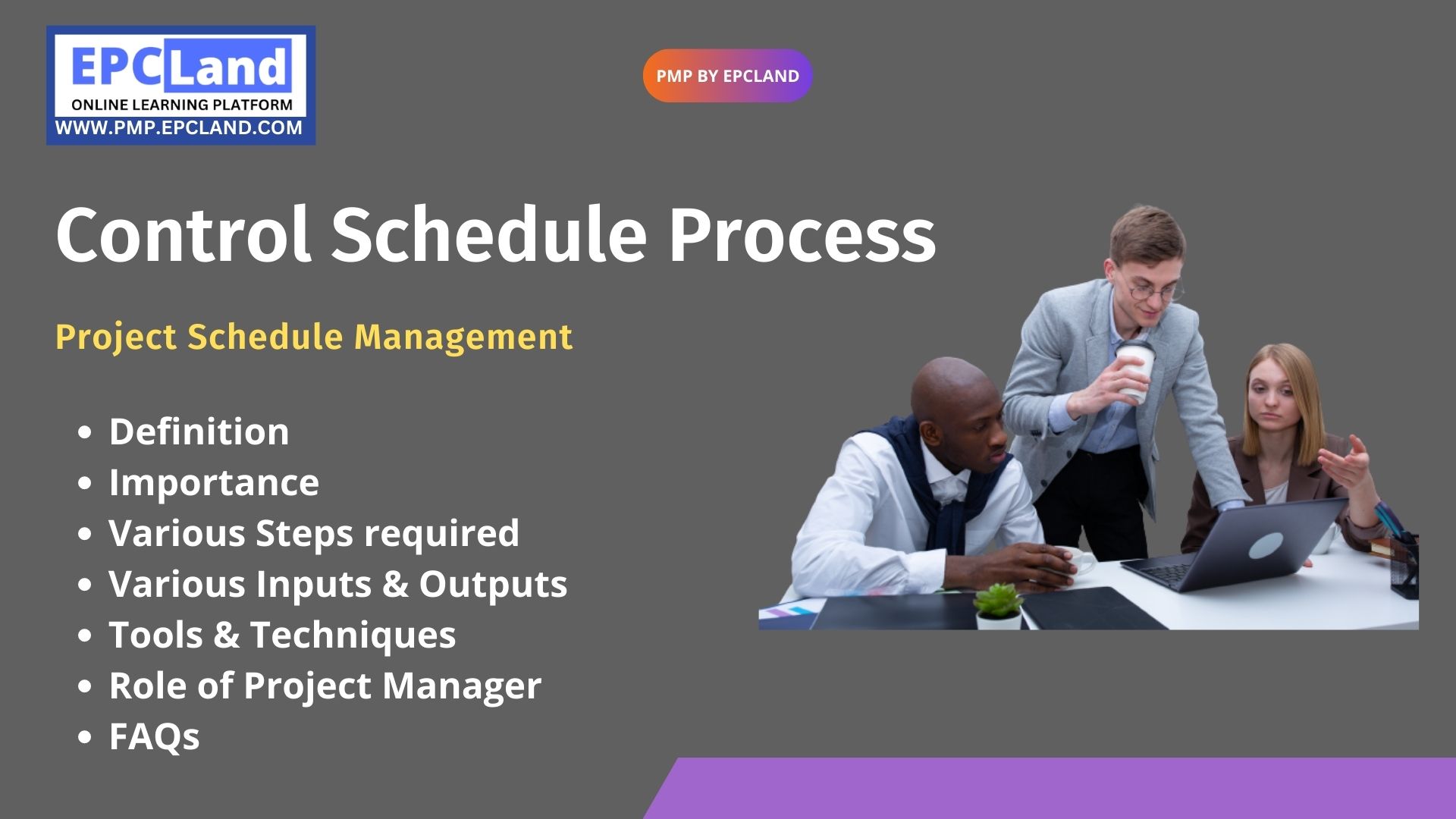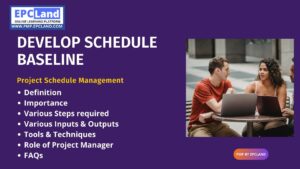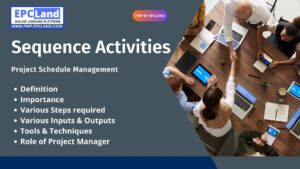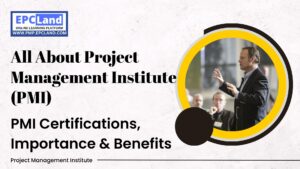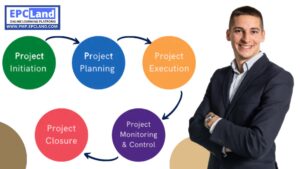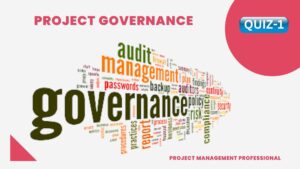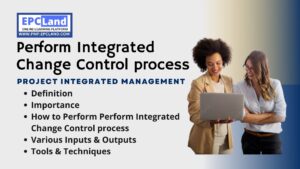A control schedule process is a crucial component of successful project management. It involves monitoring and adjusting the project schedule to ensure that it remains on track and aligned with the project goals. The process helps project managers to identify potential risks, allocate resources effectively, and make timely decisions that can keep the project on schedule. The control schedule process is a continuous cycle that starts with the development of the project schedule and ends with the final project close-out. It involves regular monitoring of progress, comparison of actual results with planned results, and taking corrective actions when needed. An effective control schedule process can greatly enhance the chances of project success by reducing delays, controlling costs, and improving the overall quality of the project deliverables.
Attempt Quiz-1 on Control Schedule Process
What is the Importance of “Control Schedule Process” in Project Schedule Management
The importance of control schedule process in project schedule management lies in its ability to:
- Ensure project is on track: Regular monitoring of project progress and comparison with the project schedule helps to identify potential risks and keep the project on track.
- Improve efficiency: By continuously adjusting the project schedule, a control schedule process can ensure that resources are allocated effectively, reducing delays and increasing efficiency.
- Increase transparency: The control schedule process provides project managers with a clear picture of project progress, helping them to make informed decisions and communicate project status effectively.
- Mitigate risks: The control schedule process enables project managers to identify and mitigate potential risks, reducing the likelihood of project failure.
- Enhance quality: By regularly adjusting the project schedule, a control schedule process can help ensure that the final project deliverables are of high quality and meet the project requirements.
What are the Various Steps required in “Control Schedule Process” in Project Schedule Management
The control schedule process in project schedule management typically involves the following steps:
- Monitor progress: Regularly track and report project progress, including any deviations from the project schedule.
- Compare with schedule: Compare actual results with planned results to identify any schedule variances.
- Identify issues: Analyze any schedule variances to identify the root cause of any issues and evaluate their impact on the project.
- Take corrective action: Develop and implement corrective actions to resolve any schedule issues and get the project back on track.
- Update schedule: Update the project schedule to reflect any changes or adjustments made as a result of the corrective actions.
- Re-evaluate: Continuously monitor and evaluate the effectiveness of the control schedule process and make any necessary changes.
- Communicate: Communicate project status and any schedule changes to all relevant stakeholders, including project team members, clients, and stakeholders.
- Close project: Perform a final review of the project schedule and close the project once all deliverables have been completed and all project goals have been achieved.
What are various Tools & Techniques used for “Control Schedule Process” in Project Schedule Management
The control schedule process in project schedule management can be supported by various tools and techniques, including:
- Schedule performance index (SPI): This tool helps to measure the efficiency of the project schedule and identify any variances.
- Earned value management (EVM): This technique helps to measure the progress of a project and compare it with the project schedule.
- Critical path method (CPM): This tool helps to identify the critical path of a project, which is the sequence of activities that determines the minimum completion time.
- Gantt charts: A visual representation of the project schedule that helps to identify schedule variances and track progress.
- Project management software: Project management software can be used to create, manage, and update project schedules, as well as track progress and identify schedule variances.
- Risk management tools: Tools such as risk registers and probability impact matrices can be used to identify and mitigate potential risks that may affect the project schedule.
- Change management processes: Change management processes help to control and manage any changes to the project schedule, ensuring that the project remains on track and aligned with the project goals.
These tools and techniques can be combined in a tailored manner to support the specific requirements of each project, helping project managers to effectively monitor and control the project schedule.
What are various Inputs required for “Control Schedule Process” in Project Schedule Management
The control schedule process in project schedule management requires the following inputs:
- Project schedule: The project schedule provides the baseline for monitoring and controlling the project timeline.
- Actual progress: Actual progress reports are used to track progress and compare it with the project schedule.
- Change requests: Change requests are used to evaluate and manage any changes to the project schedule.
- Project management plan: The project management plan provides guidance on the process and tools to be used in the control schedule process.
- Work performance information: Information on work performance is used to measure progress and identify schedule variances.
- Resource availability: Information on resource availability is used to allocate resources effectively and adjust the project schedule as needed.
- Project charter: The project charter provides an overview of the project goals and objectives, which are used to evaluate the success of the control schedule process.
- Risk register: The risk register provides information on potential risks that may affect the project schedule, and is used to identify and mitigate these risks.
What are various Outputs required for “Control Schedule Process” in Project Schedule Management
The control schedule process in project schedule management produces the following outputs:
- Schedule forecasts: Schedule forecasts provide an updated view of the project schedule, based on actual progress and any schedule changes.
- Corrective action: Corrective action plans are developed to resolve any schedule issues and bring the project back on track.
- Schedule changes: Schedule changes are made to reflect any adjustments to the project timeline.
- Project management plan updates: The project management plan is updated to reflect any changes made to the project schedule.
- Project status reports: Project status reports provide an overview of project progress, including any schedule changes and their impact on the project timeline.
- Schedule variance analysis: Schedule variance analysis is used to identify the root cause of any schedule issues and evaluate their impact on the project.
- Resource utilization reports: Resource utilization reports provide information on resource allocation and usage, and are used to adjust the project schedule as needed.
- Close project documentation: Close project documentation includes a final review of the project schedule, and is used to close the project once all deliverables have been completed.
What is Role of the Project Manager in “Control Schedule Process” in Project Schedule Management
The project manager plays a crucial role in the control schedule process in project schedule management. Some of the key responsibilities of the project manager include:
- Monitoring progress: The project manager is responsible for monitoring actual progress and comparing it with the project schedule.
- Identifying variances: The project manager is responsible for identifying any schedule variances and developing corrective action plans to resolve them.
- Managing changes: The project manager is responsible for managing any changes to the project schedule, ensuring that they are approved and implemented in a controlled manner.
- Communicating status: The project manager is responsible for communicating project status, including any schedule changes and their impact, to the project team, stakeholders, and clients.
- Allocating resources: The project manager is responsible for allocating resources effectively to support the project schedule and resolve any schedule issues.
- Managing risks: The project manager is responsible for managing risks that may affect the project schedule, including identifying potential risks and developing mitigation plans.
- Updating the project management plan: The project manager is responsible for updating the project management plan to reflect any changes made to the project schedule.
Attempt Quiz-2 on Control Schedule Process
Final take Away on “Control Schedule Process” in Project Schedule Management
The control schedule process is an essential aspect of project schedule management, helping project managers to monitor and control the project timeline effectively. By using various inputs and tools, the control schedule process provides a clear view of project progress, identifies schedule variances, and takes corrective action to resolve any issues. The project manager plays a crucial role in the control schedule process, ensuring that the project remains on track and aligned with the project goals. To ensure a successful project outcome, it is important to have a well-defined control schedule process in place, and to regularly monitor and adjust the project schedule as needed.
FAQs on “Control Schedule Process” in Project Schedule Management
- What is the purpose of the control schedule process in project schedule management?
The purpose of the control schedule process is to monitor and control the project schedule effectively. It provides a clear view of project progress, identifies schedule variances, and takes corrective action to resolve any issues, ensuring that the project remains on track and aligned with the project goals.
- What are the inputs to the control schedule process in project schedule management?
The inputs to the control schedule process in project schedule management include the project schedule, actual progress, project status, schedule forecasts, and project management plan updates.
- What are the tools and techniques used in the control schedule process?
The tools and techniques used in the control schedule process include schedule variance analysis, resource utilization reports, corrective action, and schedule changes.
- What is the role of the project manager in the control schedule process?
The project manager is responsible for monitoring actual progress, identifying schedule variances, managing changes to the project schedule, communicating project status, allocating resources, managing risks, and updating the project management plan. The project manager is the key decision-maker in the control schedule process.
- What are the outputs of the control schedule process?
The outputs of the control schedule process include schedule forecasts, corrective action plans, schedule changes, project management plan updates, project status reports, schedule variance analysis, resource utilization reports, and close project documentation. These outputs support the ongoing control of the project schedule and provide information on project progress and status.
